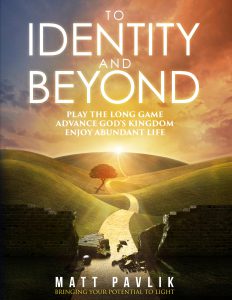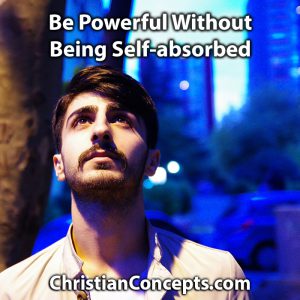You can see your self-worth only when you look into a mirror. To discover your worth, you must look outside of yourself. Your self-image can appear differently depending on where you look. What mirror are you looking into for your worth?
A physical mirror reflects your body. Because a mirror has imperfections, you won’t be able to see a completely accurate image of yourself. If you want to know your worth, you must look into more than just a mirror and with more than just your physical eyes.
Distorted Mirrors Reflect a Distorted Self-Worth
Life provides an uncountable number of distorted mirrors that can produce false reflections. People make up the majority of these mirrors. Chances are you’ve looked to at least one of the following in the last day for a clue into your worth:
- Your boss or job
- Your spouse
- Your parent
- Your performance
- Your friend
- Your self
- The devil
Experiences with other people have such a strong influence on our self-esteem. You can’t help it. God designed you to look outside of yourself for your self-worth. When was the last time you turned to anyone on that list and received a clear and complete understanding of who you are? It’s impossible.
Even though many of the people in your life can provide encouragement through glimpses of your true self, you’ll never be able to receive the whole picture from any of them. In fact, until Jesus returns, you must live with imperfect sight.
Now we see things imperfectly, like puzzling reflections in a mirror, but then we will see everything with perfect clarity. All that I know now is partial and incomplete, but then I will know everything completely, just as God now knows me completely.
1 Corinthians 13:12 NLT
An incomplete puzzle has pieces missing which makes it impossible to see the full image. To function without the full image requires faith, which is one of the three greatest virtues Paul is talking about in Corinthians 13:13.
Perfect Mirrors Reflect an Accurate Self-Worth
While there are many distorted mirrors, there is only one perfect mirror. Only Jesus can reveal your true self. When you ask Jesus who you are, you will receive a straight, accurate answer. He can look through all distortions to see who God made you to be.
To see yourself as God see you, to discover your true self-worth, you can’t look with physical eyes. Instead, you must look into Jesus’s eyes with your spiritual eyes. When you see His gaze by faith, that is, when you see His face, you can trust your eyes. Even then, however, the picture you receive is going to be missing some pieces. Only God knows you completely. You can’t completely see and understand yourself this side of heaven.
A person’s steps are directed by the Lord.
Proverbs 20:24 NIV
How then can anyone understand their own way?
I’m an introvert. I like to be introspective. But as much as I do, I quickly reach a point where I can see no further. I don’t understand fully how God made me or who I’m supposed to be. Yet with God’s Spirit with me, there is enough understanding to know my self-worth and act by faith.
Take a moment now to look at yourself according to the measure of faith God has given you (Romans 12:3). As you look into Jesus’s face, what love do you see looking back at you? Ask God to strengthen your faith. Then remember what you see. When you are tempted to doubt your worth in a difficult situation, recall how God sees you.
Read my book To Identity and Beyond for a more detailed discussion.
How to keep your self-worth.
Image by AliceKeyStudio from Pixabay














